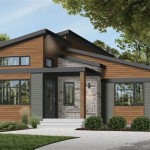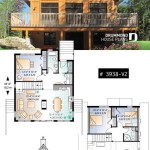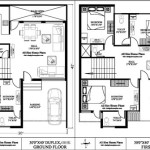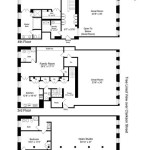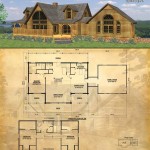House Master Plan: A Comprehensive Guide to Designing Your Dream Home
Building a house is a significant investment, both financially and emotionally. A well-defined house master plan serves as the roadmap for this journey, ensuring the final product aligns with the homeowner's vision and lifestyle. It acts as a blueprint, guiding every stage of the construction process, from initial conceptualization to the final finishing touches. A comprehensive master plan minimizes costly revisions and delays, paving the way for a smoother, more efficient building experience.
Key Elements of a House Master Plan
Several crucial elements contribute to a robust house master plan. These components work together to create a cohesive and functional design. Addressing each element thoroughly ensures a comprehensive plan that leaves no room for ambiguity.
*
Site Analysis:
A thorough site analysis assesses the property's characteristics, including topography, soil conditions, sun exposure, and prevailing winds. This information informs design decisions regarding the home's orientation, placement, and landscaping. *Space Planning:
This crucial step involves determining the size, layout, and function of each room within the house. Careful consideration of traffic flow, furniture placement, and future needs ensures a comfortable and practical living space. *Architectural Style:
The architectural style dictates the overall aesthetic of the house. Choosing a style that complements the surrounding environment and reflects the homeowner's preferences is essential for creating a harmonious and visually appealing design. *Material Selection:
Specifying the materials for the exterior and interior finishes, such as roofing, siding, flooring, and countertops, is a key element of the master plan. Material choices impact both the aesthetic and the budget of the project. *Building Systems:
The master plan should outline the mechanical, electrical, and plumbing (MEP) systems. This includes specifications for HVAC, lighting, plumbing fixtures, and electrical outlets. *Landscaping:
Integrating landscaping into the master plan ensures a seamless transition between the house and its surroundings. This may include plans for patios, walkways, gardens, and other outdoor features. *Budget and Timeline:
Establishing a realistic budget and timeline is crucial for managing expectations and keeping the project on track. The master plan should outline the estimated costs for each phase of construction and a projected completion date.Benefits of a Well-Developed House Master Plan
Investing time and effort in creating a comprehensive house master plan offers numerous advantages. This proactive approach mitigates potential problems and streamlines the construction process.
*
Cost Control:
A detailed plan allows for accurate cost estimations and helps avoid unexpected expenses during construction. By identifying potential issues early on, the homeowner can make informed decisions and prevent costly revisions later. *Efficient Construction:
A clear plan provides a roadmap for the construction team, ensuring everyone is on the same page. This minimizes delays and confusion, leading to a more efficient building process. *Improved Communication:
The master plan serves as a communication tool between the homeowner, architect, and builder. It facilitates clear and concise communication, reducing misunderstandings and ensuring everyone is aligned with the project goals. *Enhanced Design:
A well-developed plan allows for careful consideration of all design elements, resulting in a more cohesive and functional home. By thinking through every detail in advance, the homeowner can create a space that truly reflects their lifestyle and preferences. *Reduced Stress:
Building a house can be a stressful undertaking. A comprehensive master plan helps alleviate this stress by providing a clear roadmap and minimizing unexpected challenges.Working with Professionals for Your House Master Plan
While some homeowners may be tempted to create their own master plan, engaging professionals is highly recommended. Their expertise and experience contribute significantly to a successful project.
*
Architects:
Architects bring design expertise and technical knowledge to the table. They can translate the homeowner's vision into a functional and aesthetically pleasing design. They also handle necessary permits and approvals. *Interior Designers:
Interior designers focus on the interior spaces, ensuring functionality and aesthetic appeal. They assist with space planning, furniture selection, and material specifications. *Contractors:
Contractors manage the construction process, overseeing subcontractors and ensuring the project stays on schedule and within budget. Their practical experience is invaluable in navigating the complexities of building a house. *Landscapers:
Landscapers design and implement the outdoor spaces, creating a cohesive and visually appealing environment. They work in conjunction with the architect to ensure the landscaping complements the overall design of the house.Considerations for a Successful House Master Plan
Developing a successful house master plan requires careful consideration of several factors. These considerations ensure the plan aligns with the homeowner's needs and the project's constraints.
*
Lifestyle Needs:
The plan should reflect the homeowner's lifestyle and how they intend to use the space. Consider factors such as family size, entertaining habits, and hobbies. *Future Flexibility:
Anticipate future needs and incorporate flexibility into the design. Consider potential changes in family size or lifestyle that may require adjustments to the space. *Sustainability:
Incorporate sustainable design principles to minimize the home's environmental impact. This may include energy-efficient appliances, solar panels, and water-saving fixtures. *Local Regulations:
Adhere to local building codes and regulations. The master plan should comply with all applicable zoning ordinances and building permits.By addressing these key elements and working with qualified professionals, homeowners can create a house master plan that lays the foundation for their dream home. A well-developed plan ensures a smoother construction process, a more functional living space, and a more satisfying overall experience.

House Plans How To Design Your Home Plan

How To Draw A Floor Plan Live Home 3d

House Plan Images To Inspire You Houseplans Blog Com

Architecture House Master Plan With Landscaping Design Cadbull

10 Villa Master Plan Ideas House Design Dream Mansion Luxury Homes Houses

Top Tips For Choosing A Floor Plan Your New Home

Creating A Great Floor Plan Tips From Home Designer

3800 Sq Ft Mediterranean House Floor Plan 4 Bed Bath

Plan 69691am One Story House With Two Master Suites Plans New 2 Bedroom

Lochinvar Luxury Home Blueprints Open Floor Plans

